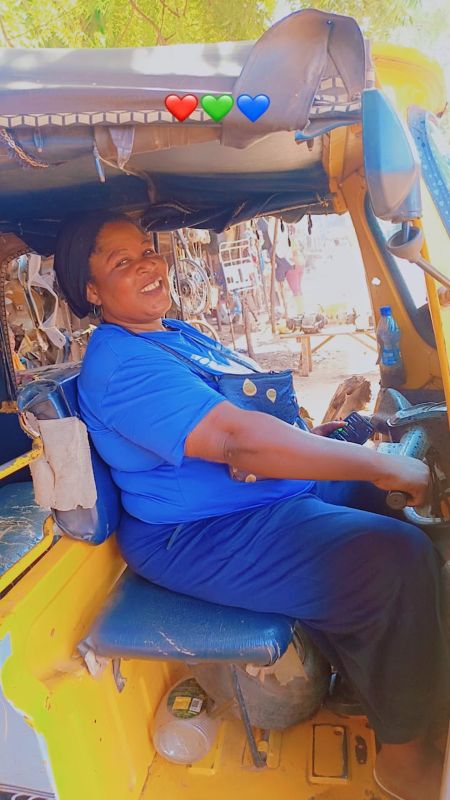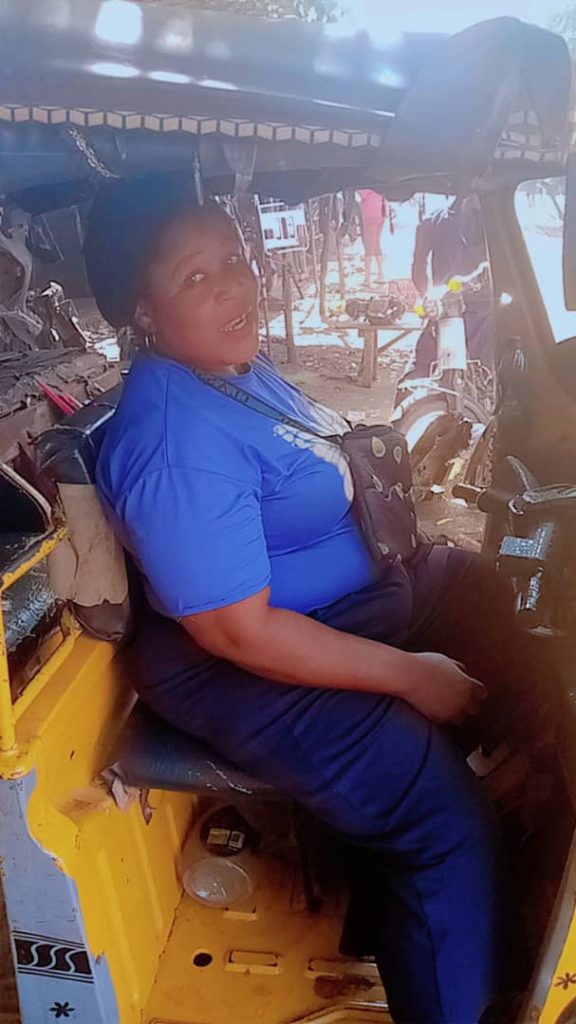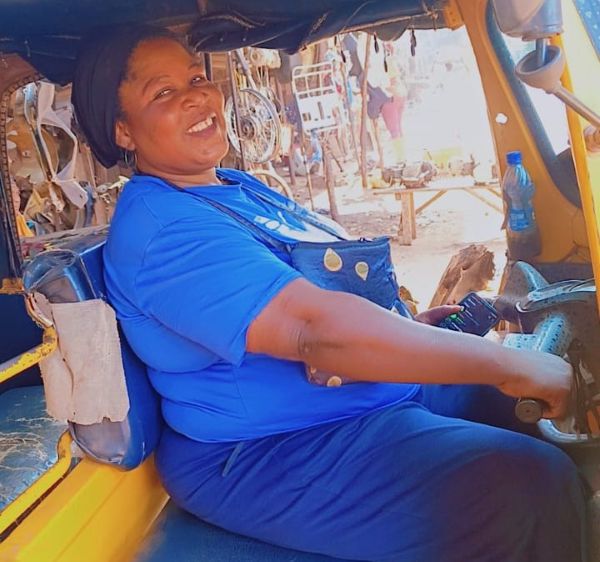In Sokoto State, Northwest Nigeria, commercial driving is widely regarded as a man’s job. It is almost unthinkable or unbelievable to see a woman controlling a commercial tricycle, locally known as Keke Napep, in the Caliphate City of Sokoto metropolis.
But in 2024, Madam Godiya, a 50-year-old mother, defied the odds. Once a trained nurse, she dropped her hospital uniform for a tricycle key, entering a world few women in her community dared to explore.
From nursing to the road
For years, Madam Godiya worked as a nurse in a hospital within a military barracks in Sokoto. But after losing her husband in 2009, she was left to care for her four children alone.
“Life without a husband is not easy,” she recalls. “When I lost my husband, I thought the world had turned against me. But eventually, with courage and perseverance, life became sweet for me.”
Despite her dedication and resilience at work, her monthly salary of ₦20,000 could not sustain her family’s needs, as two of her children were in tertiary institutions and two were still in secondary school.
According to her, the salary wasn’t enough as she had children and parents to care for. So, she decided to quit and look for something else, telling herself that there’s no harm in trying.

Breaking barriers
When she first took to the streets of Sokoto with her tricycle, many people were shocked because it was the first time they had seen a woman driving a commercial Keke. Some passengers hesitated to enter her vehicle, doubting whether she was a commercial driver.
“I was told that Sokoto people wouldn’t allow me to do it, but I said since it’s not prostitution or stealing, let me try. If they stop me, I’ll give it to someone else,” Godiya recalled.
But to her surprise, the opposite happened. Instead of rejection, Madam Godiya began receiving encouragement and admiration from the public.
She further stated with pride, “Many women now enter my Keke and even dash me extra money. Some just stop me on the road to say, ‘Madam, God will bless you.’ That gives me courage.”
Data from the National Bureau of Statistics shows that Nigeria’s unemployment rate was 4.3 percent in the second quarter (Q2) of 2024. However, a 2018 report revealed that 49.6% of women in Sokoto were unemployed. With Godiya’s commitment, that narrative can begin to change.
Finding success and respect
Godiya’s bold move paid off because today she earns between ₦10,000 and ₦15,000 daily, depending on how much she works. She now drives confidently around popular markets such as Kasuwar Daji and Kasuwar Ɗankure, where she has regular customers, both men and women.
Initially, she was scared, but now Madam Godiya has many customers. Some call her to take them to events; others hire her to move goods. “It puts food on my table and pays my bills,” she said with a smile on her face.
Although her children were initially shy about their mother’s new profession, they eventually became proud of her. “I told them it’s not stealing, so I won’t feel shy.”
Changing perceptions
Madam Godiya’s courage has inspired other women in Sokoto. Many now see her as a role model, often approaching her to ask how they too can join the business.
“Some of my fellow women ask me to teach them how to drive,” she said. “They see that it gives me joy, confidence, and independence.”
Her story challenges long-held stereotypes and sends a clear message that women can thrive in any field if given the opportunity.
Beyond one woman’s story
Madam Godiya’s journey is more than a personal triumph—it reflects a growing awareness that women’s economic participation is vital to Sokoto’s development and Nigeria in general. Her courage shows that with determination, cultural barriers can bend, and new paths can open.
As more women in Sokoto look to non-traditional professions, her story stands as living proof that resilience and hard work can change the narrative.
As Godiya continues her job with pride, she is also making a significant impact. Recently, an organization called Win-Win Unions and Members Empowerment approached her, expressing interest in training 50 women and empowering them with tricycles to be paid back in installments.
So far, she has trained 12 women about two weeks ago, stating that, “Right now, I have around 30 women on the ground who will soon be trained. Initially, the company planned to train 50 women and 100 men, but for my part, I’m training only women,” she added with a smile.
A message of strength

As Madam Godiya continued to pursue her new profession, she advised widows and struggling mothers in Sokoto that they shouldn’t depend on anybody, stressing that life can be hard, but since they have their hands, they can try. There’s no harm in trying.
“Never depend on any man. Focus on your future and your children’s future. As for me, anytime I drive my Keke, I do it with joy. It gives me confidence,” she advised other women.
Expert insight
Experts note that Godiya’s story highlights the importance of women’s inclusion in unconventional economic spaces and the urgent need for policies that support them.
According to Dr. Yakubu Shaba, a senior lecturer in the Department of Business Administration at Usmanu Danfodiyo University, Sokoto, women like Godiya are redefining gender roles and inspiring others to break social barriers. He notes that her success underscores how necessity can drive innovation and empowerment among low-income women.
Dr. Shaba stresses that government and development organizations must recognize and support such efforts by providing access to finance, vocational training, and business mentorship. Sustainable interventions, he said, can transform survival strategies like Godiya’s into stable livelihoods that lift entire families out of poverty.
“Godiya’s story proves that what a man can do, a woman can also do,” he added, stating that it is a reminder that economic empowerment is not just about income—it’s about dignity, independence, and the courage to change societal expectations.


